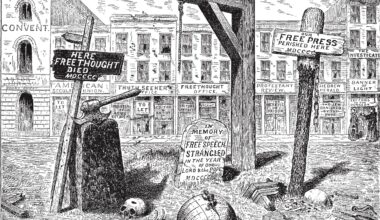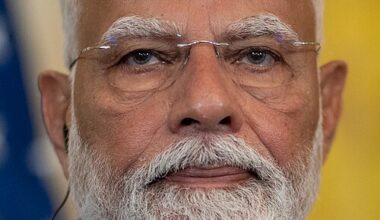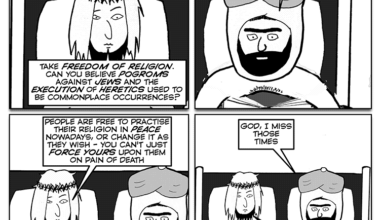
In 2018, a group of feminists in Karachi, the largest city in Pakistan, decided to march for gender justice on 8 March, International Women’s Day. They named it Aurat March (Women’s March). Hundreds marched with colourful placards demanding immediate social change in the country. The march kept growing and in subsequent years marches were held in various other cities including Lahore, Islamabad, Hyderabad, Multan, Larkana, Faisalabad, and Sukkur. This year saw hundreds join the seventh Aurat March in several cities across Pakistan. Nevertheless, the march has seen severe backlash over the years, not only from the media and society at large but also from the state.
How did this radical and reviled movement begin? I spoke to classical dancer and social activist Sheema Kermani, who has been involved with the Aurat March Karachi Chapter since its inception. She said that their idea was to show society that women have had enough and that they were ready for change. They had no idea that the Aurat March would turn into such a massive movement:
‘Seven years ago, we did not know how far it would go or whether it would be more than that. We wanted to show our protest and resistance against patriarchy. More importantly, we wanted to show that women in Pakistan were ready for a change.’
The mainstream media mostly ignored the first march, but this is true for all social movements in the beginning. However, as the movement grew, some of the slogans from the march such as mera jism meri marzi (my body, my choice) went viral on the internet and inspired a huge backlash. The march was accused of being against the societal norms, religion, and culture of Pakistani society.
Some opponents of Aurat have tried to place restrictions on the march, claiming that the slogans were immoral and indecent. However, Islamabad High Court dismissed that petition and ordered that the words used in the slogans of the march should be understood based on the intentions of the marchers rather than through the mindset of a certain section of society who opposed the march. Another attempt to ban the march was rejected by the Lahore High Court. Since these cases, the organisers have worked hard to keep the march going every year while handling the backlash and court cases and keeping the marches in line with legal directions—not to mention keeping the marchers safe.
Journalist and feminist Sabahat Zakariya, a regular at Aurat March Lahore Chapter, told me that the march’s biggest achievement was to push people to talk about issues that they would not even normally count as issues:
‘The march did a lot to bring certain intangible ideas to the mainstream. Like [the slogan] khud khana garam karlo (warm your food yourself). It is not a light issue. It is about domestic burdens and who takes work responsibility in the house. These are very important things that need…to be reflected upon.’
The state has also resisted the march. The organisers of several chapters have faced issues with getting permits for the march and have had to deal with security arrangements, route approval, handling court petitions against the march, and filing petitions to seek assistance in carrying out the march. These things take most of their energy and resources, leaving them with limited room for focusing on the march itself. An organiser from the Lahore Chapter told me (on the condition of anonymity):
‘I think people did not understand the march in 2018. We started seeing resistance after the 2019 march, especially at the state level. Every year, the resistance is different. Last year, we were not permitted to arrange the march [in Lahore], though we have been marching for several years. Eventually, the court permitted us.’
The organiser said that some chapters face more difficulties than others. In some cities like Karachi and Lahore, the march is more or less accepted, while in Islamabad the police restrict marchers to a specific area. In some conservative areas of the country, it is entirely impossible to organise a march.
‘I feel the government [and the police] have gotten used to the march. Now we do not see administrative resistance. They have security plans, they know our routes…but society gives us strong resistance. Some file petitions [against the march] every year,’ the Lahore Chapter organiser said. ‘In Islamabad, police give more resistance to marchers. They did not let them march beyond the Press Club [this year]. In Karachi and Lahore, the situation is a bit more lenient. Though we do [still] face some resistance from the police.’
2021 was the toughest year for Aurat organisers and marchers. They had to deal with several blasphemy cases against them. This was when they became more cautious of the media. Many of them would decline to comment or would request anonymity. They were already wary of the mainstream media due to incorrect reporting and its insensitivity towards gender issues and events. The blasphemy accusations increased this wariness. As the Lahore Chapter organiser said,
‘We recognize that more engagement with media will bring harm to the march because they do not have gender sensitivity and skills to cover [the] women’s movement. It is not our goal that the media should cover the march much due to bad experiences. We think it is good to stay [aside] from the media.’
Zakariya is of the opinion that the mainstream media has deliberately not been engaging with the movement. However, she thinks the march has become ‘dull’ because now the marchers are not as bold as they used to be. They are more engaged with the mainstream media critique. They bring with them placards that are more focused on answering media criticisms than on expressing their own views.
Dr Feroza Batool, who researched backlashes to the Aurat March for her doctoral thesis, believes that despite the popularity and impact of the march, it has experienced an intense decline in its momentum, mainly due to the backlash:
‘I feel that the momentum of the Aurat March has decreased. The march was giving space for people to come there and talk about their issues. It was perhaps a big thing for a group that wanted that space to let out their frustration and reflect on their lived experiences through their placards. But there were other people too who, when [they] received backlash, could not handle it and they decided to back off.’
Dr Batool also raised concerns about the movement’s inclusivity and connection to the grassroots. She found in her research that march organisers in several cities started to distance themselves from local organisations and unions working for women’s rights:
‘I feel the open idea of different perspectives on feminism and the environment that was there in the start for everyone started to reduce over time. The march is not very inclusive. The march [has tilted] to the elite circle of feminists in the past few years. It happens to other movements too. A movement starts, people join it, but then some hijack it. I feel those on the forefront of such movements get some rigidity in themselves and they expect that others [should] follow them with the same perspective.’
However, she also said that the march had shaken the patriarchy in the conservative society of Pakistan and that it would keep doing so due to the involvement of youth in the movement. Nonetheless, the march will have to do a lot more to turn into a movement that involves everyone from every segment of society, and it faces a long and difficult struggle to realise its aim of women’s emancipation in Pakistan.
Further reading
Breaking the silence: Pakistani ex-Muslims find a voice on social media, by Tehreem Azeem
The power of outrage, by Tehreem Azeem
From religious orthodoxy to free thought, by Tehreem Azeem
Coerced faith: the battle against forced conversions in Pakistan’s Dalit community, by Shaukat Korai
South Asia’s silenced feminists, by Kunwar Khuldune Shahid
Religion and the decline of freethought in South Asia, by Kunwar Khuldune Shahid








Your email address will not be published. Comments are subject to our Community Guidelines. Required fields are marked *
Donate